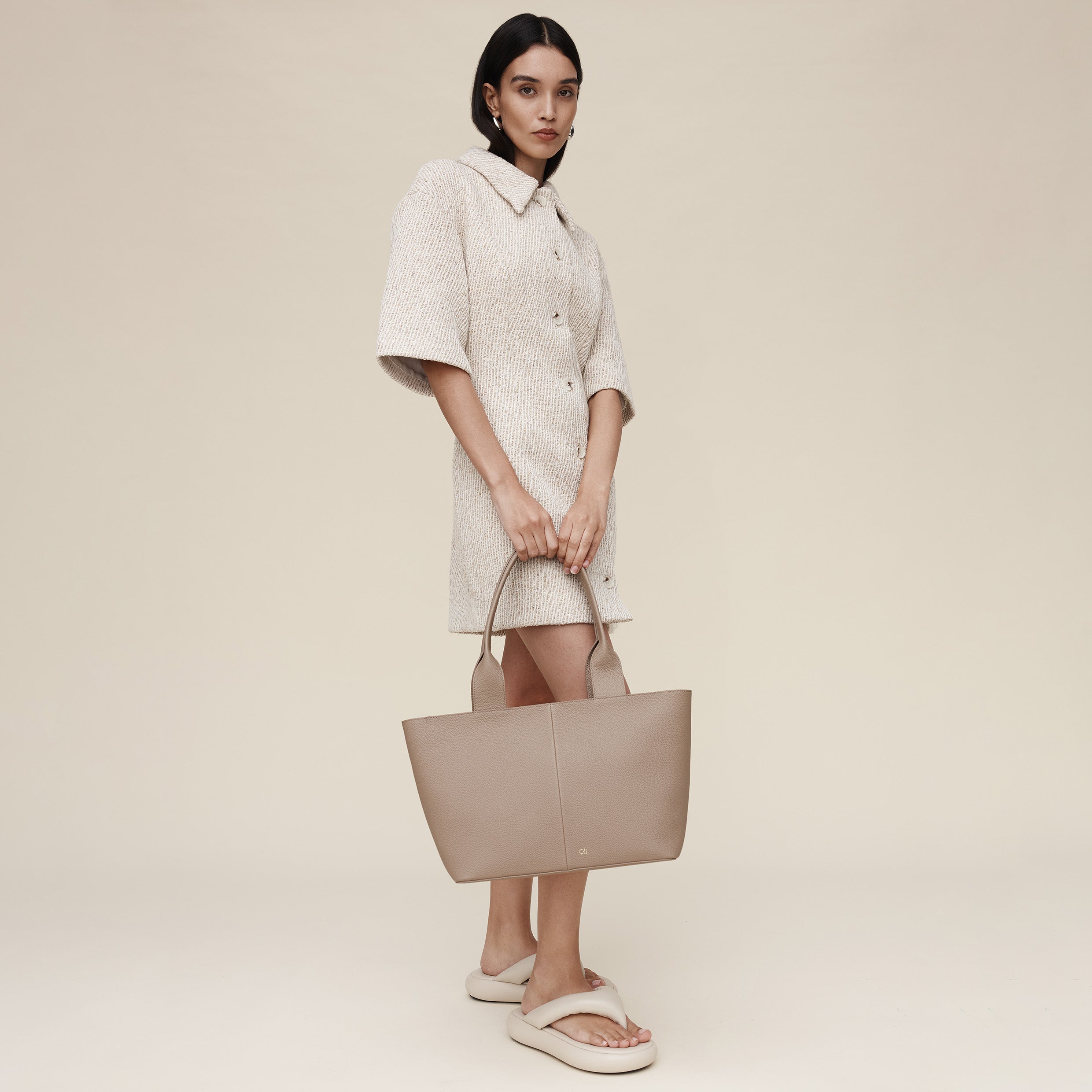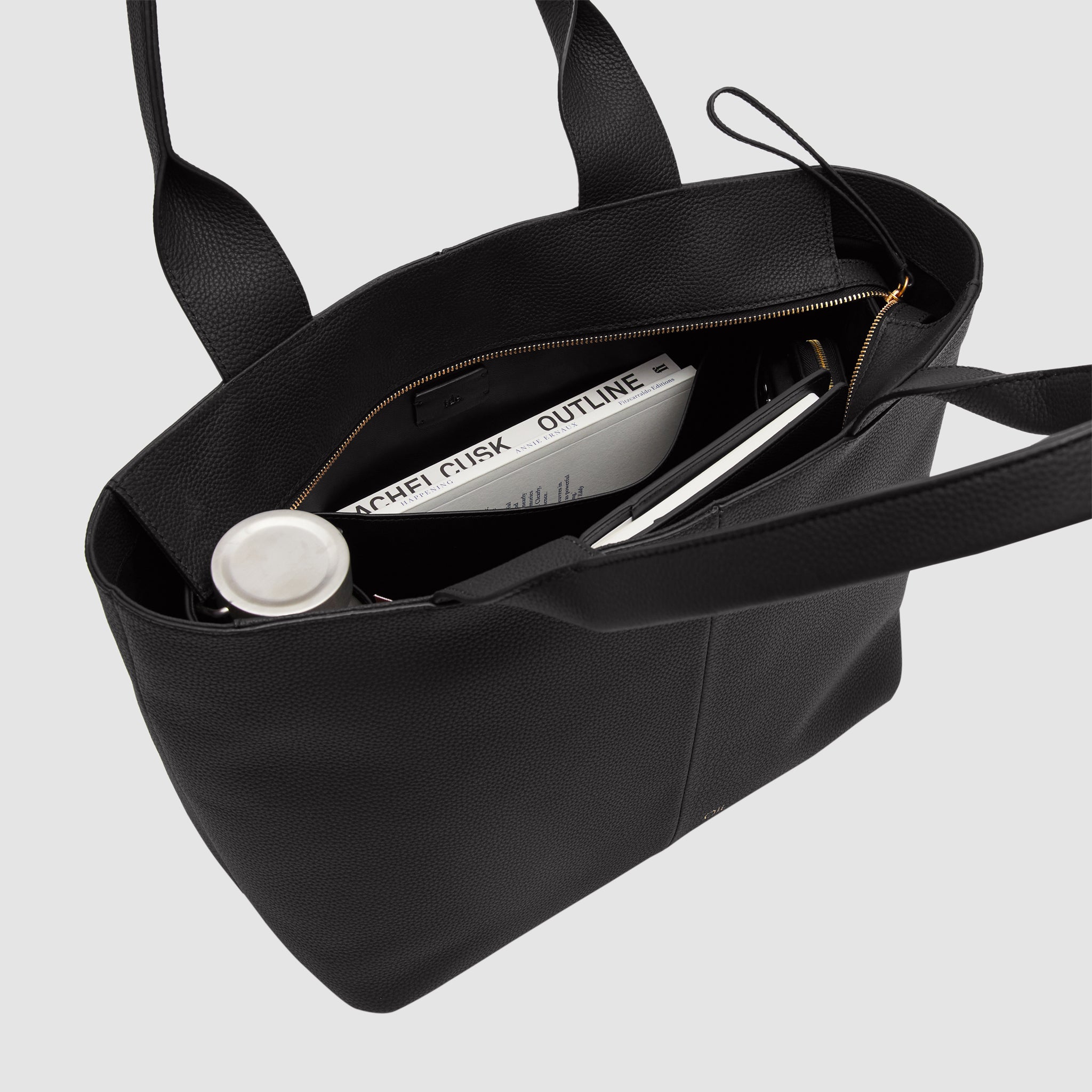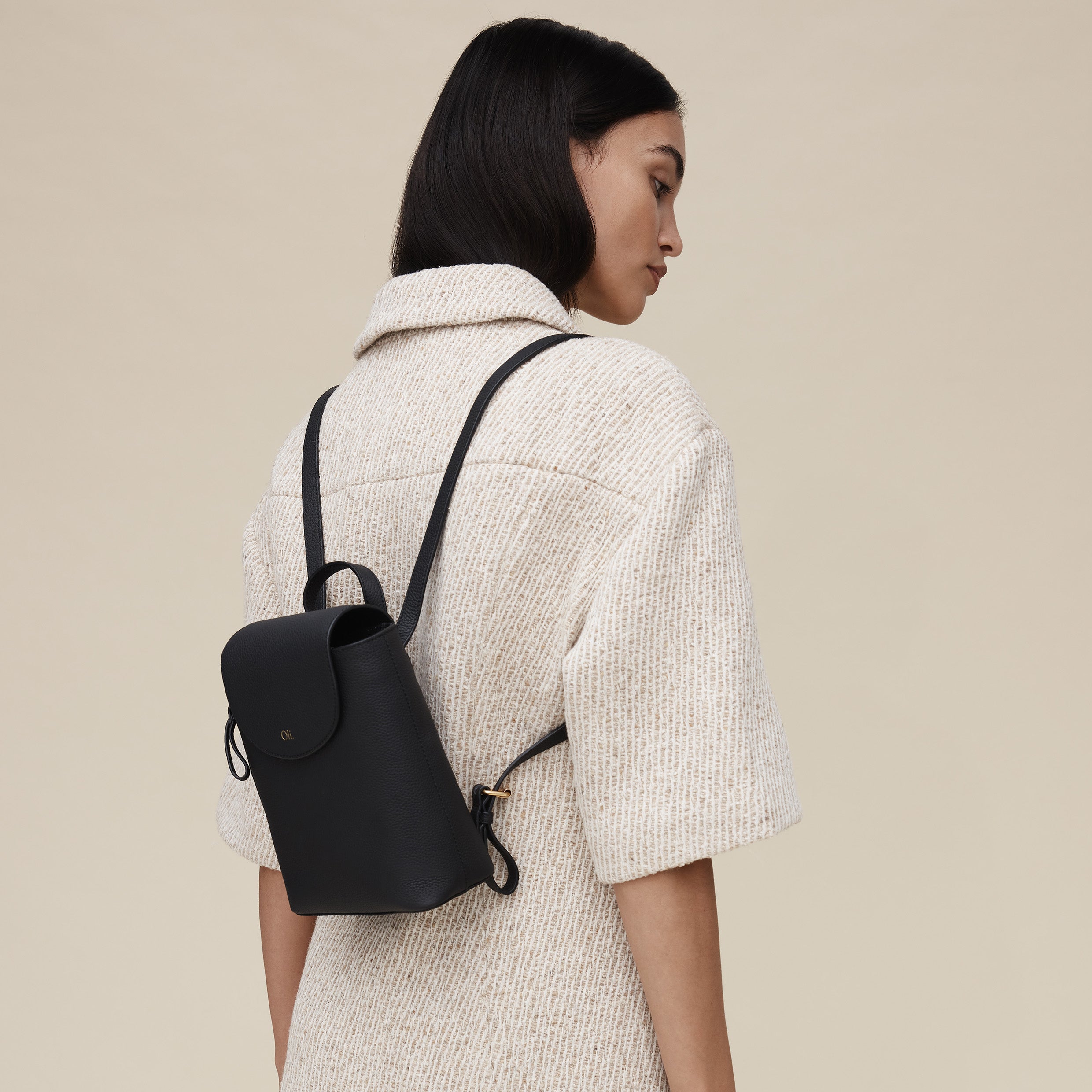- Start by emptying your bag. It's easier to organise when you start fresh. Now, think about your trip. Is it a short staycation or a business trip? Your items will depend on this.
- Your tote bag's internal zip compartment is ideal for safeguarding critical items like passports or important documents. It's also handy for smaller items, such as keys, that you don't want to lose in the larger compartment.
- Next, categorise your belongings. This could include tech accessories, toiletries, or snacks. Each category should have its own designated space in your bag. This easy organisation approach not only keeps your items neat but also makes it quicker to locate what you're looking for.
Remember, packing a travel-friendly tote isn't about fitting everything. It's about smart organisation that makes your journey more enjoyable. So whether you're preparing for a short staycation or gearing up for business trips, these tips will help you keep your tote bag organised and ready for travel.

How do you organise a tote bag that has no pockets?
Organising a tote bag without pockets can initially seem challenging, but with clever solutions, it becomes simple. Start by using smaller bags within your tote to create designated spaces. Toiletry bags and wash bags are excellent for grouping small items like cosmetics or personal care items, keeping them contained and preventing spills from affecting other belongings. A sunglass pouch can protect your glasses or sunglasses from getting scratched or damaged while making them easy to find. Lastly, a cardholder is a practical addition to keeping your cards organised and easily located. With these 'mini compartments' in your pocket-less tote, you can easily maintain order and find what you need quickly.

Which one is better to travel, a backpack or a tote bag?
Choosing the right bag can make or break your travel experience.
A student travelling for an exchange program would benefit from a backpack due to its capacity and comfort. However, a professional attending a business conference might prefer a stylish tote bag that fits their laptop and documents while complementing their professional attire. Digital nomads travelling to a new city might opt for a backpack due to its superior organisation features for tech gadgets. But for a day trip to the beach, a tote bag is a perfect choice to carry a book, sunscreen and a towel.
Let's delve into the pros and cons of backpacks and tote bags-
Backpacks
Pros:
-
Ergonomics & Comfort: Backpacks distribute weight evenly across both shoulders, making them a good choice for long journeys. This can be particularly beneficial for students who often carry heavy books and laptops.
-
Capacity & Organisation: With multiple compartments and pockets, backpacks offer excellent organisation, ideal for digital nomads juggling tech gadgets.
-
Adventure-friendly: A durable, water-resistant backpack is a must-have for outdoor adventures like hiking.
Cons:
-
Accessibility: Items at the bottom of the backpack can be hard to reach quickly.
-
Security: In crowded spaces, backpacks can be more susceptible to pickpocketing.

Tote Bags
Pros:
-
Ease of Access: Tote bags provide quick access to your belongings, which is handy for professionals needing to retrieve items frequently.
-
Style: Available in a variety of materials and designs, tote bags can complement personal style, appealing to fashion-conscious travellers.
-
Light Travelling: A tote bag can carry essentials without feeling cumbersome for a city exploration or beach trip.
Cons:
-
Weight Distribution: Carrying a tote bag on one shoulder can lead to discomfort if it's too heavy.
-
Limited Capacity: Tote bags typically have fewer compartments, which can limit organisation.
In conclusion, the choice between a backpack and a tote bag depends on various factors such as travel duration, planned activities, personal comfort, and style preferences. Always consider your specific needs before making a decision.
